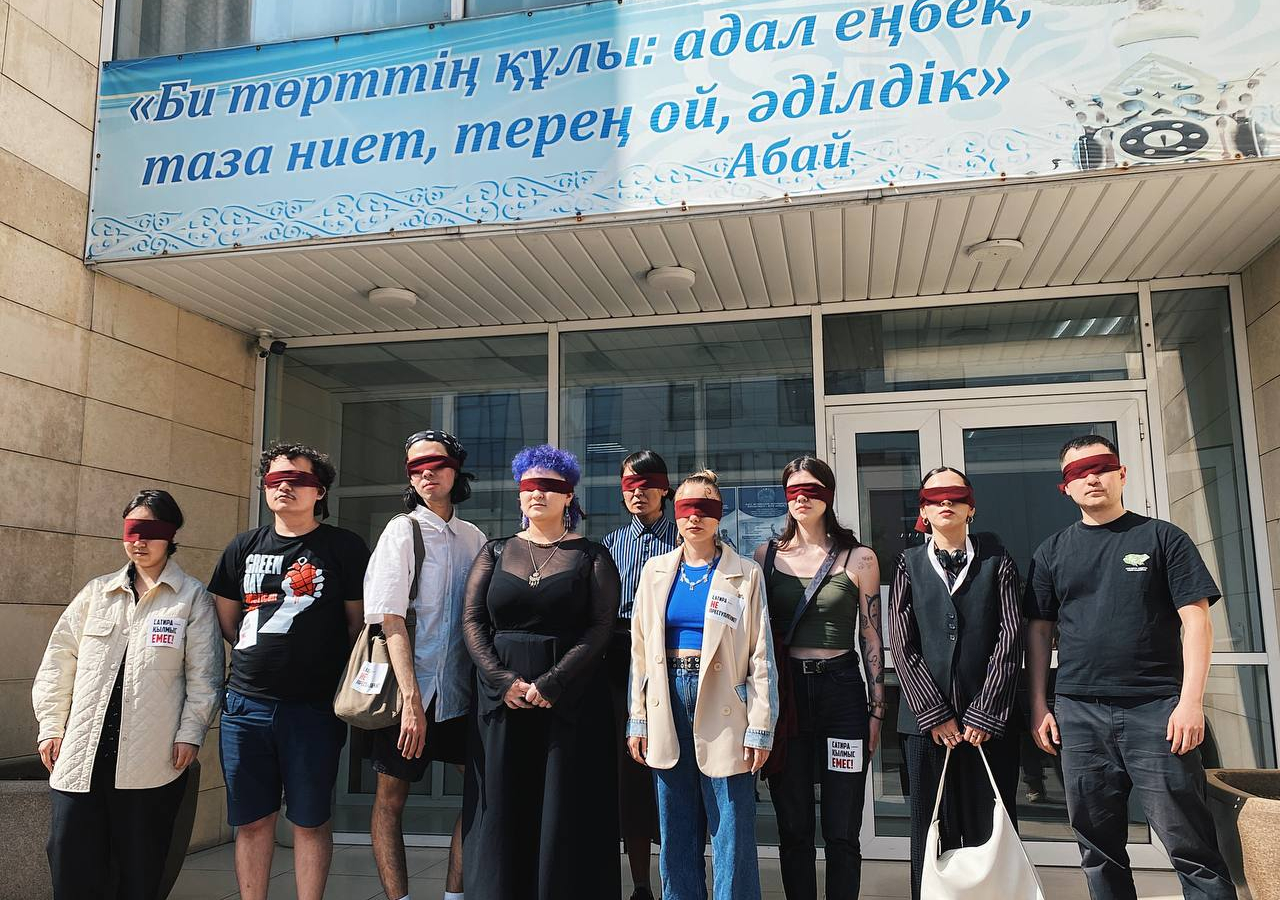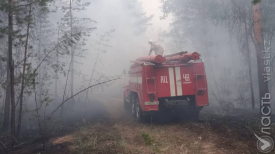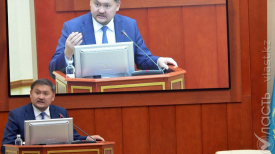The ministry of economy said on April 10 that it is drafting a plan for a $50/barrel oil price scenario. Earlier, the government only had envisioned a $60/barrel worst case scenario, but with oil price falling it was forced to consider the potential of even lower budget revenues. Oil exports and oil-related activities are the bulk of Kazakhstan’s economic wealth and oil prices have a direct effect on the country’s welfare. President Kassym-Jomart Tokayev said on April 11 that in case of a global economic crisis the government will continue to use National Fund assets to plug budget holes.
Kazakhstan’s ministry of energy said on April 10 that it is in talks with foreign oil companies regarding oil production cuts. Kazakhstan has constantly exceeded the monthly quota set by the OPEC+ group of oil exporting countries, attracting open criticism. After the Chevron-led Tengiz oil field was recently upgraded, oil production has significantly increased in the country.
The Caspian Pipeline Consortium said on April 9 that it resumed loading oil at one of the two moorings at the Russian port of Novorossiysk that were previously shut down. Russian regulators restricted the use of the marine terminal during an investigation on an oil spill. The CPC transports around 80% of Kazakhstan’s oil exports.
Kazakhstan’s Central Bank kept interest rates at 16.5% on April 11, a move that most observers expected given the current economic instability. Growing inflation dissuaded the regulator from reducing the base rate, a stated goal towards reaching a more stable economic outlook. Among the proposed measures to protect the economy, the Central Bank proposed to increase minimum reserve requirements for banks within the next three months. In a positive sign, the regulator said it sees no reason to panic over what is happening on global markets.
The Majilis, Kazakhstan’s lower chamber of Parliament, passed April 9 on the new Tax Code, which is poised to increase value-added tax collection. Ahead of the final reading, however, members of the ruling Amanat party asked the Majilis to consider increasing the proposed VAT threshold: a previously planned sharp reduction of the VAT threshold had worried small and medium businesses, who would now have to register and charge VAT to each transaction. The new yearly revenue threshold is set at 40 million tenge ($79,000), almost half the previous value. A Demoscope survey showed that 57% of Kazakhstanis disagree with the proposed amendments, which include a significant VAT rate increase from 12% to 16%.
A court in Almaty briefly detained and fined on April 10 a number of activists who had come out in support of Temirlan Yensebek, the author of a satirical Instagram page who is currently on trial. The following day, Yensebek was sentenced to five years of so-called “restricted freedom” (a form of non-custodial sentence) for “inciting ethnic hatred.” Yensebek was detained in January, about seven months after republishing a satirical song in one of his posts. While serving his sentence, he will be banned from doing charitable work, receiving grants, or publishing on social media. The court also ordered the defendant to refrain from drinking alcohol and “visiting entertainment venues.”
Police in Astana detained and questioned Lukpan Akhmedyarov, a well-known independent journalist, in the evening of April 10. Akhmedyarov said he is being accused of spreading false information, a criminal charge in Kazakhstan. He believes the accusation relates to an investigation he conducted about Kazakhstan’s citizens being recruited into the Russian military.
Music by authors and performers from Kazakhstan is now again available on Instagram, the ministry of justice noted on April 11. Last fall, most copyrighted music from Kazakhstan disappeared from one of the most popular social media apps because Meta, Instagram’s parent company, and the Kazakhstan Authors' Society failed to reach an agreement on the compensation. The Society said they have now reached an agreement.
The UN Human Rights Committee received a complaint regarding the murder of Ruslanbek Zhubanazarov, who was shot dead in January 2022 in Aktobe, the family lawyers told Vlast on April 8. Zhubanazarov was killed during the violent repression of public protests across Kazakhstan, known as Qandy Qantar (Kazakh for “Bloody January”).
Поддержите журналистику, которой доверяют.








